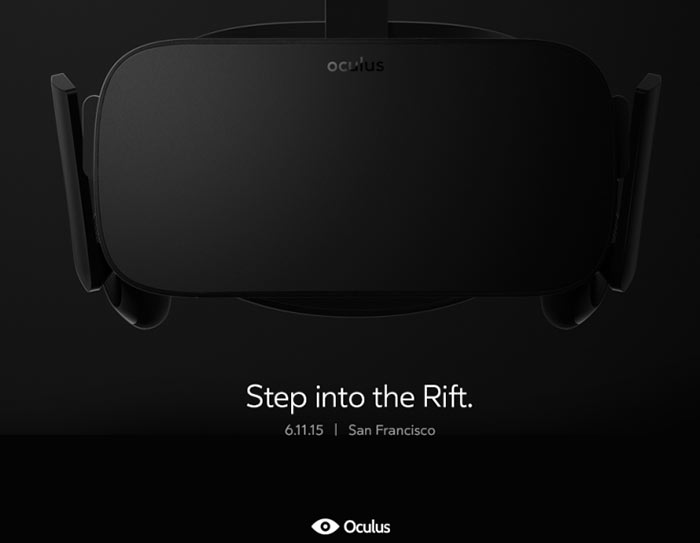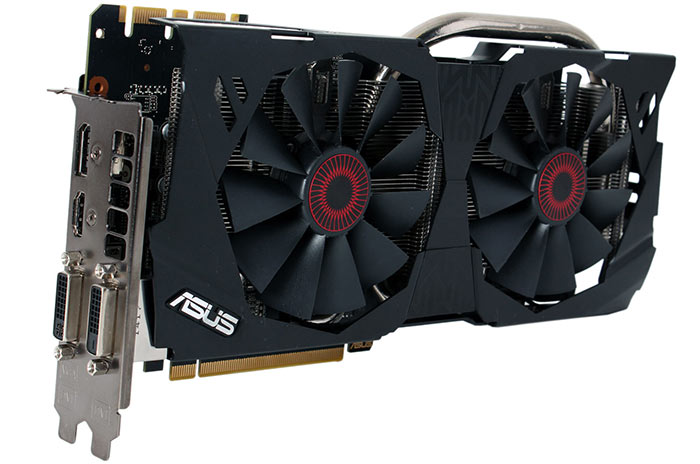Oculus has started to end out invites to a special press event which will take place in the days running up to the E3 show next month. The Event is called 'Step into the rift' and will take place in San Francisco on the 11th June.
It is expected that the special event will be consumer focussed and reveal market-ready hardware. Alongside the hardware, which won't look too different from what you see in the invite below, there should be announcements made concerning the all-important development company backing and software title support Oculus has gathered.

Early 2016 consumer launch.
Earlier this month we discovered that Oculus Rift isn't due to arrive for consumers until early 2016, with pre-orders later this year. The Oculus blog noted that we would be learning much more about the "hardware, software, input, and many of our unannounced made-for-VR games and experiences".

PC recommended spec. OS X & Linux development "paused".
A few days ago Oculus told us of the recommended spec for a "for the full Rift experience". You will require a pretty meaty machine including the following hardware:
- NVIDIA GTX 970 / AMD 290 equivalent or greater
- Intel i5-4590 equivalent or greater
- 8GB+ RAM
- Compatible HDMI 1.3 video output
- 2x USB 3.0 ports
- Windows 7 SP1 or newer

To discuss the above specification requirements Atman Binstock, Chief Architect at Oculus and technical director of the Rift, wrote a detailed blog post. He explained that a comfortable, sustained VR experience needs an entire system capable of delivering sufficient raw rendering power, real-time performance and low-latency. Further along in his post Binstock said that "development for OS X and Linux has been paused in order to focus on delivering a high quality consumer-level VR experience at launch across hardware, software, and content on Windows".
Yes, immersive 3D VR porn will be viewable.
In a final snippet of Oculus VR news, Oculus founder Palmer Luckey recently admitted that use of the upcoming VR headsets for immersive 3D porn viewing won't be blocked. While Oculus/Facebook will control apps distributed via the Oculus Store (which prohibits pornographic content), developers can distribute their content in other ways to the open platform.













